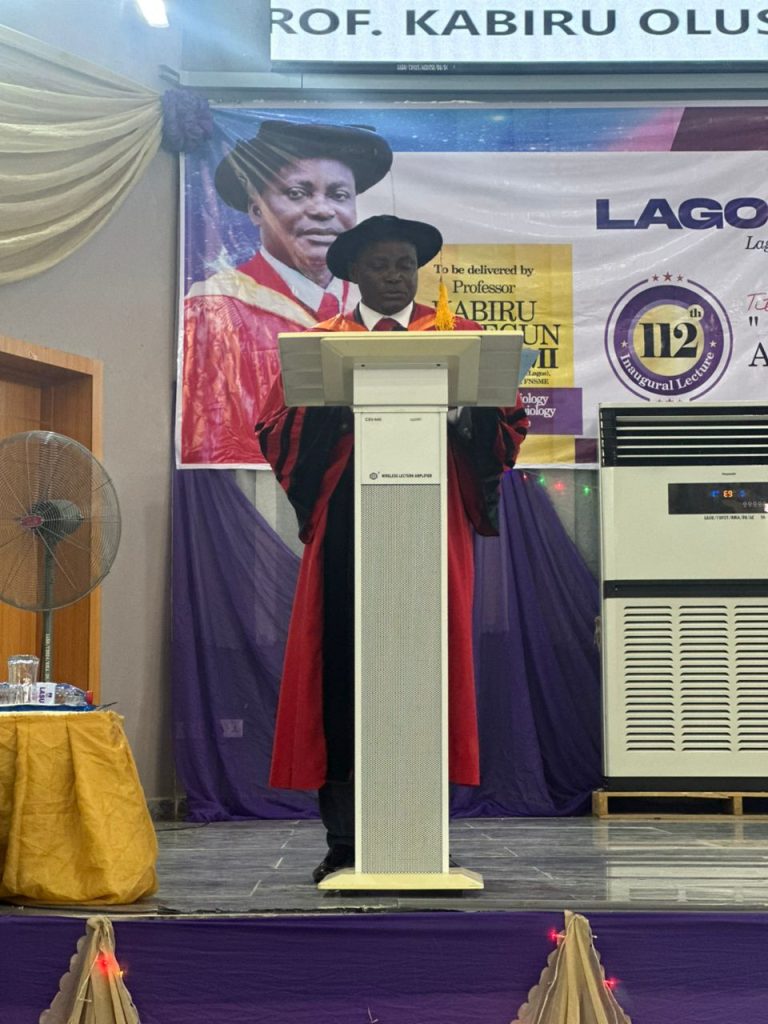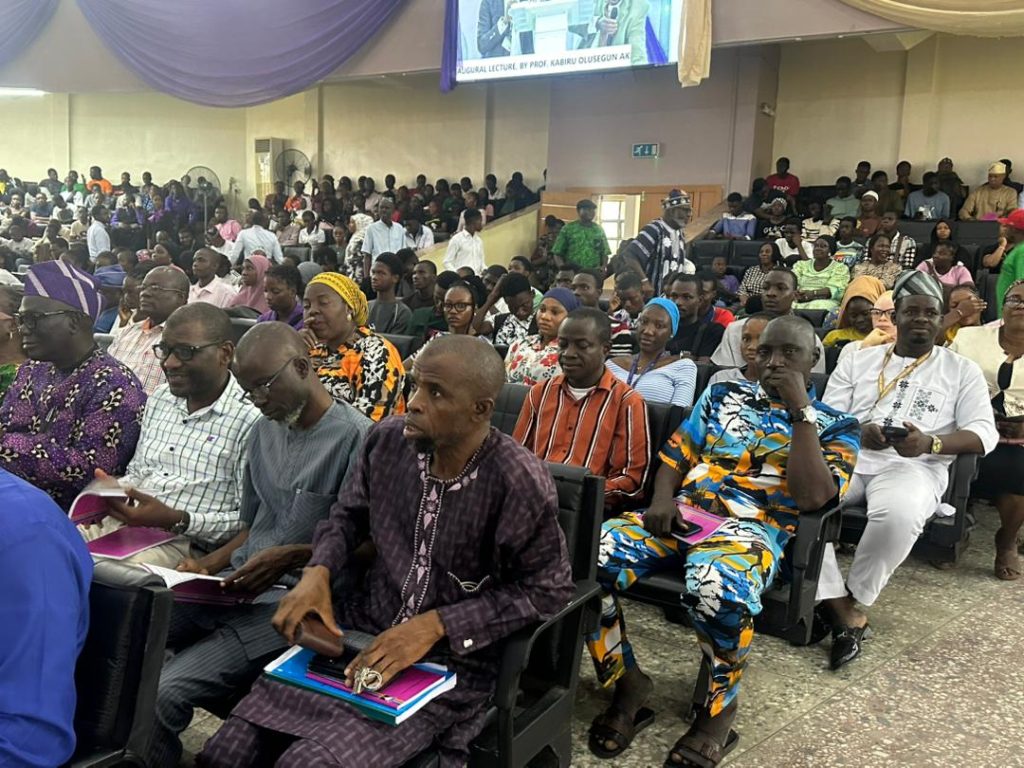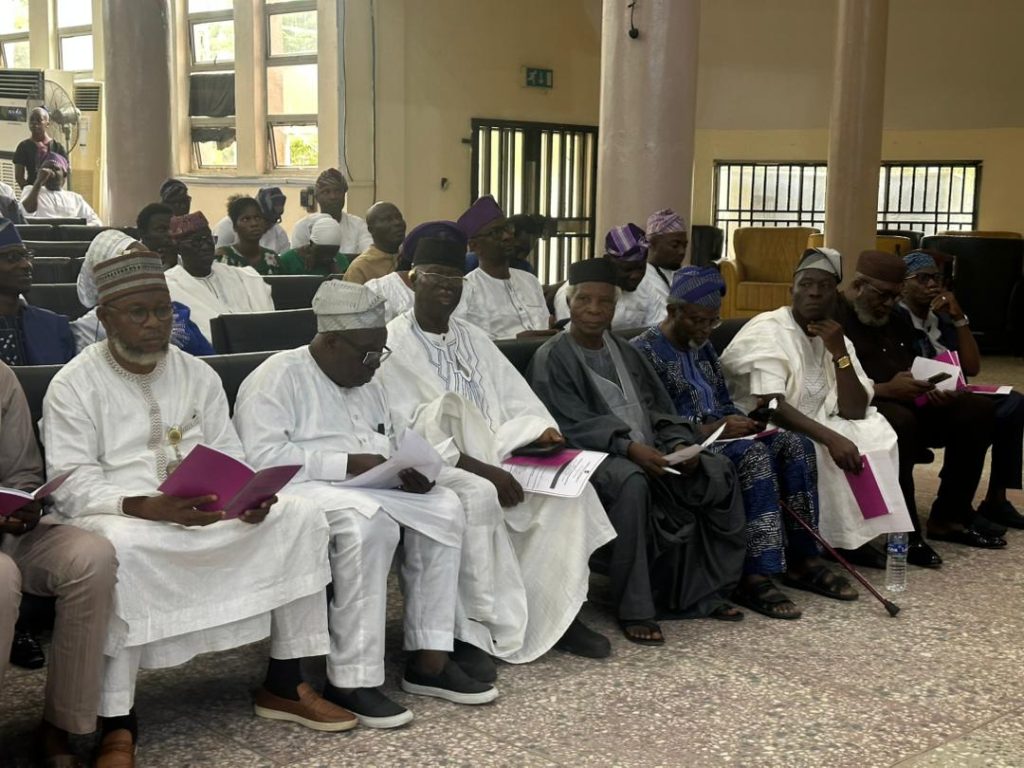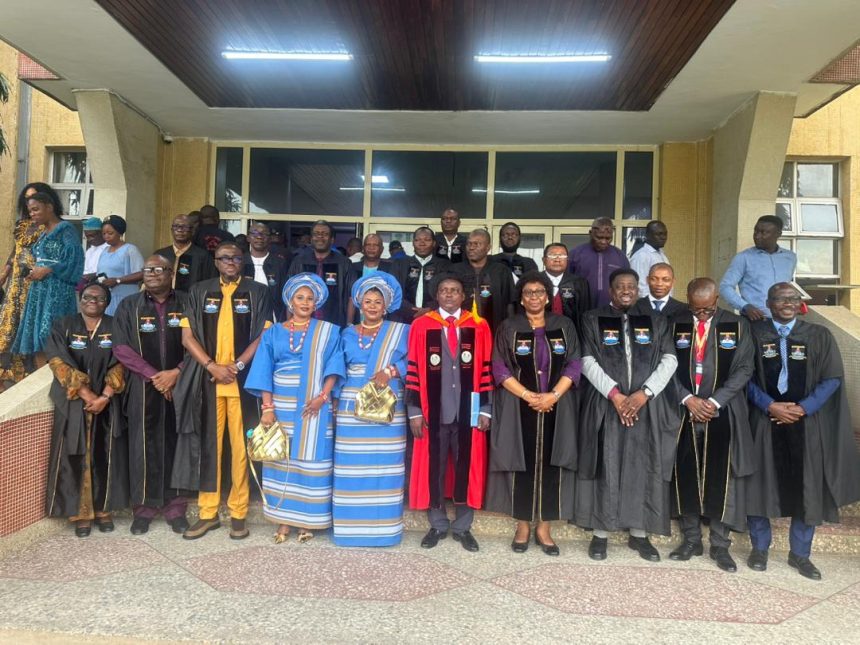……Cautions Nigerians On Environmental Contamination
Professor of Microbiology, at the Faculty of Science, Lagos State University, (LASU) Ojo, Professor Kabiru Akinyemi has urged Nigerians on the need for unwavering commitment to protect their health and fight for a future free from infectious diseases.
He stated this while delivering the university’s 112th Inaugural Lecture entitled: ‘Itsy-bitsy Animalcules in our Lives: An Unending War and Survival Strategies’ on Tuesday at the institution.
According to him the unending war between infectious pathogens and humanity is a story of resilience, innovation, and the enduring human spirit which must be taken very serious.
He also added that it is a testament to the human capacity for scientific and technological advancement and a constant reminder of the importance of collaboration and global solidarity in the face of shared threats.
“The war between microbes and man is dynamic and complex, with both sides continually evolving new strategies for survival therefore understanding the role of the host-pathogen relationship in disease occurrence is crucial for effective strategic interventions,” he added.
He described microbes to include bacteria, viruses, fungi, and protozoa and they have developed a variety of survival strategies to thrive within the human host.
These strategies according to him enable them to evade the immune system, establish infections, and persist in the body despite host defenses.
The lecturer revealed widespread environmental contamination, point-of-care diagnostics and transmission pathways of bacterial that exhibited multiple antibiotic resistance mechanisms.
Citing typhoid fever, Prof Akinyemi said that typhoid fever and other Salmonella infections often mimic malaria and endemic enteric diseases, thus, definitive diagnosis through blood culture, serology, and molecular assays is vital to guide appropriate antibiotic use and curb rising antibiotic resistance in bacterial pathogens.
To this end, he urged private and public health workers to always base a definite diagnosis of typhoid fever cases on culture. However, where the use of a single Widal agglutination test is inevitable, the Malaria parasite test should be included alongside it.

He also called for stringent surveillance and hygiene regulation in informal food sectors to prevent foodborne disease outbreaks.
Prof. Akinyemi also recommended periodic review of antimicrobial agents used in hospitals and clinics, given the rapidly spreading plasmid-encoded multidrug resistance in bacteria.
“Also, a national health policy that will encourage the search and the use of novel antimicrobial natural products from plants must be formulated, implemented, and sustained.
He disclosed that the ultimate prevention and control of typhoid fever will depend on the improvement of social welfare of the people, such as the provision of potable water.
He explained further: “A mass public campaign on safe methods of sewage and refuse disposal should be encouraged, promoted, enforced and sustained.

He however cautioned on indiscriminate use of drugs, adding that mass education of the entire populace on the danger involved in the indiscriminate use of drugs is crucial.
The lecturer validated some indigenous medicinal plants as promising alternatives to the growing, emerging and re-emerging bacteria.
These efforts he pointed will shape policy, infrastructure and public health strategies in Nigeria.
On research, Prof. Akinyemi said there is a need for the National University Commission (NUC) to make it part of its accreditation criteria that every university should set aside 5 to 10% of its annual budget as seed funds for commercially valuable innovative research, without losing focus on competing with National and international grants or funding.
“There is an urgent need for the establishment of genomic infrastructure such as a Functional National Genomic Database (NGD) and Nigerian Bacterial Culture Typing Centre (NBCTC), which will be a reservoir for all the studied bacterial strains at the genomic level for future use or applications.

Stating that the cost of identifying a bacterial pathogen from any source up to the genomic level is estimated to be between 1.9 million and 2.5 million naira, Prof. Akinyemi urged on the need to establish a bacterial culture repository in the Microbiology Laboratory at Lagos University and, by extension, in all microbiology laboratories in the Federation with a 24-hour electricity supply.
“This will serve as a feeder to Nigerian Bacterial Culture Typing Centres (NBCTC), among other applications and benefits,” he said.

“Our war with microbes is perpetual and the future depends on research and innovation with capacity building for young researchers.
“Therefore, a need for sustained genomic surveillance, establishment of Nigerian Culture-Typing Centre, vaccine rollout, low-cost diagnostics, water disinfection, and climate-health modeling will bring a balance towards coexistence and resilience between humans and itsy-bitsy animalcules,” he reiterated.
BV.












